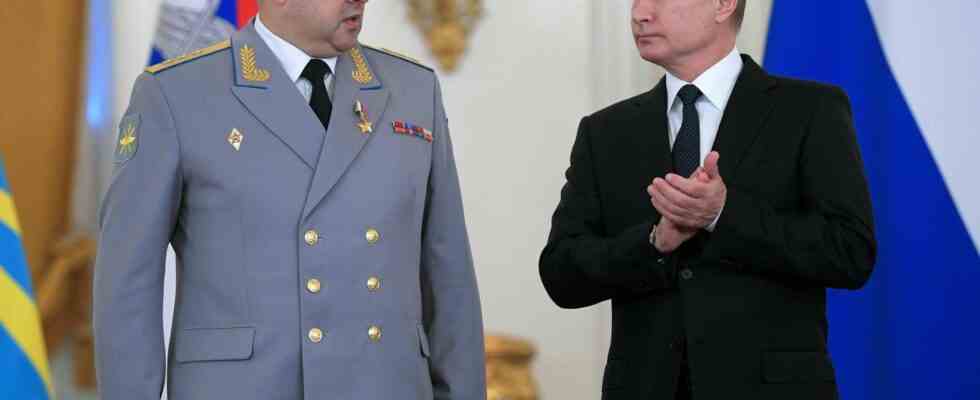Vladimir Putin will convene his Security Council, after the destruction of the Crimean bridge and the retreat of his army
The Security Council, a meeting format with the Russian president, top ministers, politicians and representatives of the security services and the military, will take place on Monday, October 10, the Kremlin announced, without giving an agenda. . If Vladimir Putin regularly holds such meetings, this one will intervene in a particularly complicated military context for the Russian power.
The partial destruction of the Kerch Bridge, linking Crimea, a region occupied since 2016, to Russia, is a major blow, structurally and symbolically. Russian authorities attributed the explosion, which killed three, to a truck bomb. Moscow did not immediately accuse Ukraine and Ukrainian officials did not formally claim responsibility. But without this key infrastructure, built at great expense by order of Putin himself, an important supply route for military equipment is disrupted.
On the military ground itself, the retreat of the Russian army in several regions will no doubt be mentioned by the members of the Security Council. The Ukrainian army’s counter-offensive, launched several weeks ago, pushed the Russians out of several major towns, such as Izium and Lymanand continues both in the north around the Kharkiv region, now fully under Ukrainian control, and in the south around that of Kherson. As noted by the specialist journal Defense & International Securitythe progress of the Ukrainian army in the last two weeks “are very real. On their own, more than Russia since mid-June”.
Ukraine has struck several bridges in the Kherson region in recent months to disrupt Russian supplies, as well as military bases in Crimea, attacks for which it did not admit responsibility until months later. The Russian army assured Saturday that the supply of its troops was not threatened in Kherson, a city occupied since the beginning of the invasion and essential to maintain a land corridor along the Sea of Azov.
The accumulated military setbacks forced the Kremlin to change the high command of the army, appointing General Sergey Surovikin to head his “special military operation” in Ukraine. The name of his predecessor has never been officially revealed, but according to Russian media it was General Alexander Dvornikov, also a veteran of the second Chechen war and commander of Russian forces in Syria from 2015 to 2016.

